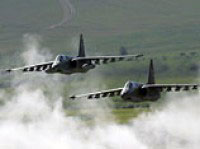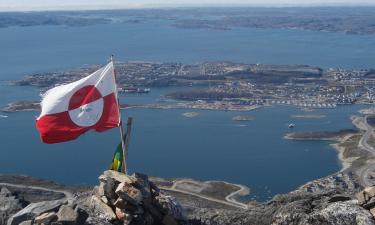Russia and Japan Still Experience WWII
Russia’s traditional military drills Vostok 2010 have caused a diplomatic protest in Japan. The Japanese Embassy in Moscow sent a note of protest to Russian diplomats against the illegal use of Japan’s northern territories. This paradox requires some explanation.

Vostok 2010 is one of Russia’s largest military exercise which incorporates the Siberian, the Far Eastern, the Volzhky, the Ural military districts and the Pacific Fleet. Japan claims that the drills touch upon the island of Iturup, which Japan calls Yetorofu. The territory of the island is not the prime location of the drills, but it is one of 18 test grounds. Up to 20,000 servicemen and several thousand units of military hardware, 70 airplanes and 30 naval vessels took part in the exercise.
The Vostok 2010 drills were held with the direct participation of President Dmitry Mededev, the Сommander-in- Сhief.
Russia Today: Bog toys for big boys: Russia shows off top military hardware
Apparently, the relations between the Russian Federation and Japan are the most paradoxical of all international relations in the world. After the end of WWII, Japan and the USSR did not sign the peace treaty. Formally, Second World War is not over yet for Japan and the Soviet Union. The signing of the treaty did not take place over the USSR’s occupation of South Kurile Islands.
Therefore, these two countries remain in a state of war. Any citizen of Japan must take efforts to retrieve the northern territories. All citizens of Japan visiting Russia must be sent to detention camps, whereas all Russians staying in Japan must be regarded as prisoners of war. Diplomatic activities between the countries, such as the work of embassies, are out of the question.
Fortunately, the world has corrected the ambitions of late politicians. That is why Russia and Japan manage to cooperate in economic issues.
Supposedly, Japan’s note of protest will be left unanswered. This is Russia’s traditional reaction to Japan’s traditional concerns. It goes without saying that the territorial dispute for Japan is the issue, which the Japanese government has to bring out to public attention time and again. It also goes without saying that there will be no changes made about the status of the “occupied northern territories,” especially as a result of the “protest against the presence of Russian troops on Japan’s sovereign territory.”
In my humble opinion, the point of the Kurile issue becomes an element of Japanese culture.
Pavel Nurminsky
Pravda.Ru
Subscribe to Pravda.Ru Telegram channel, Facebook, RSS!





